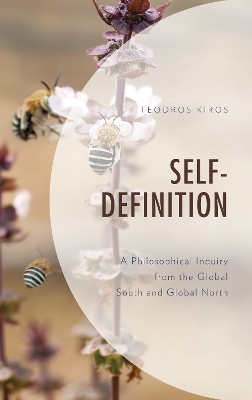Philosophy of Race
1 total work
Self Definition argues that sex, gender, and race are constructions by the ineffable self as it seeks to define its possibilities free of domination. The self's embodiments are themselves performances of self definition. Teodros Kiros supports his argument by a careful reading of the literature from both the Global South and Global North that spans figures, works, and eras from antiquity to our late modern present. These readings demonstrate that race, gender, and sex are performed in the Global South radically differently from in the Global North. These three notions as markers of identity are fluid, open, and expansive, and Kiros brilliantly shows this through inquiry into thought rooted in Egypt, Ethiopia, India, and China. By the time that the Global North forges possibilities of the self in the modern period, race, gender, and sex become fixed. Biology and anatomy become understood as destinies, and the possibilities of the self are deeply constrained.
This book approaches case studies of key figures and movements chronologically and thematically, and in doing so Kiros highlights the tensions between the openness of the Global South and the rigidity of the Global North through which human possibilities as exercises of self-definition become clear under conditions of freedom. Our views of self definition will forever be transformed after reading this important text.
This book approaches case studies of key figures and movements chronologically and thematically, and in doing so Kiros highlights the tensions between the openness of the Global South and the rigidity of the Global North through which human possibilities as exercises of self-definition become clear under conditions of freedom. Our views of self definition will forever be transformed after reading this important text.
